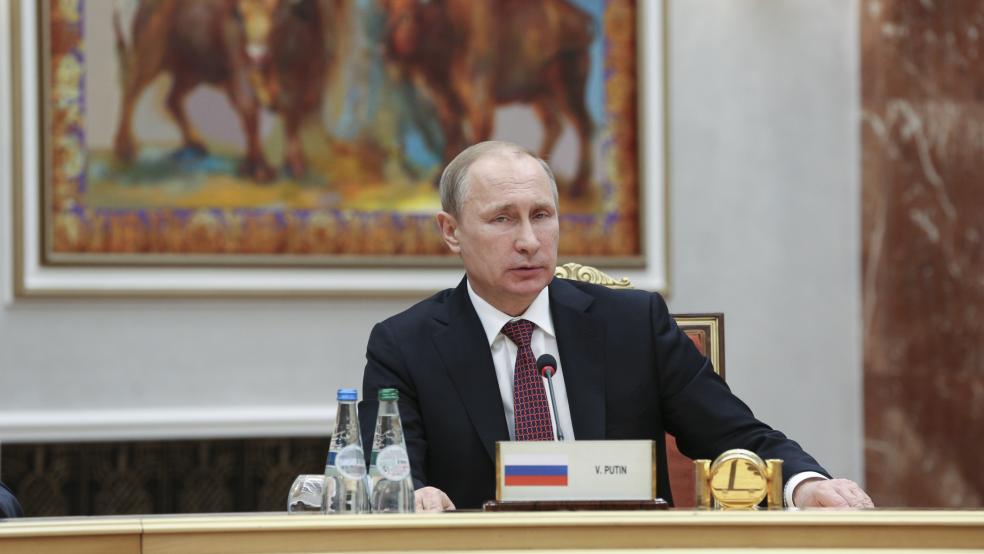Russian President Vladimir Putin gave a lengthy interview to the German newspaper Bild last week in which he discussed many of the problems facing Europe and the Middle East. To anyone familiar with the Russian leader’s worldview, it will come as little surprise to learn that he placed the blame for much of what ails the world directly on the United States.
Putin sat down with Bild Publisher Kai Diekmann and Senior Politics Editor Nikolaus Blome in the Russian resort town of Sochi, where he owns a home. According to English translations of the conversation released by both Bild and by the Kremlin, Putin blames much of the tension between Russia and the West on what he plainly views as a betrayal by the North Atlantic Treaty Organization.
Related: Eau de Putin: Russian Leader Inspires Cologne
NATO officials, Putin claims, promised Russia that there would be no eastward expansion of the alliance after the dissolution of the Soviet Union. Putin also criticized NATO nations for lacking the political will to deny membership to former Soviet Republics that met the alliance’s requirements and requested membership.
“NATO and the USA wanted a complete victory over the Soviet Union,” Putin said. “They wanted to sit on the throne in Europe alone. But now they are sitting there, and we are talking about all these crises we would otherwise not have.”
To the extent any of the fault for tensions in Europe can be laid at the feet of Russia, Putin said, it is because Moscow failed to push back hard enough against the West after the Berlin Wall fell.
“If we had presented our national interests more clearly from the beginning, the world would still be in balance today,” Putin said.
Related: Putin Would ‘Welcome’ a Donald Trump Presidency
He did allow that much of Russia’s problematic economic crisis is due to internal pressures and a failure by successive governments to modernize the economy.
“After the demise of the Soviet Union, we had many problems of our own for which no one was responsible but ourselves: the economic downfall, the collapse of the welfare system, the separatism, and of course the terror attacks that shook our country. In this respect, we do not have to look for guilty parties abroad.”
When asked about the crisis at the root of much of the tension between Russia and its neighbors to the west, the invasion of Ukraine’s Crimean peninsula, Putin was unapologetic. He blamed the situation in Ukraine on the government in Kiev, which came to power after former president Viktor Yanukovych was driven from office following his refusal to act on a deal to align the country more closely, in an economic sense, with Western Europe.
Putin cast Russia’s invasion of Crimea, and its continuing support of armed rebels in eastern Ukraine as some sort of humanitarian effort.
Related: Donald Trump’s New Role – Apologist for Vladimir Putin
“The nationalists’ coup in the Ukrainian capital of Kiev in February 2014 has hugely scared 2.5 million Russian people living on Crimea. So what did we do? We have not gone to war, we have not fired, not a single person was killed. Our soldiers have merely prevented the Ukrainian troops on Crimea from impeding the freedom of expression of the people.”
Of course, thousands of people are dead, and Russian soldiers have done plenty of the shooting and the killing, as multiple independent non-governmental organizations have documented.
Putin described the “annexation” of Crimea by Russia by pointing out that the people of the region voted in favor of it. “This is democracy, the people’s will,” he said. Conveniently, he left out the fact that the vote was conducted in a country under armed occupation by a foreign power with a very strong interest in the referendum’s result.
“Of course one always has to follow international law,” he said, when questioned about Russia’s role in the referendum. “This was also the case in Crimea. According to the Charter of the United Nations, every people has the right to self-determination.”





